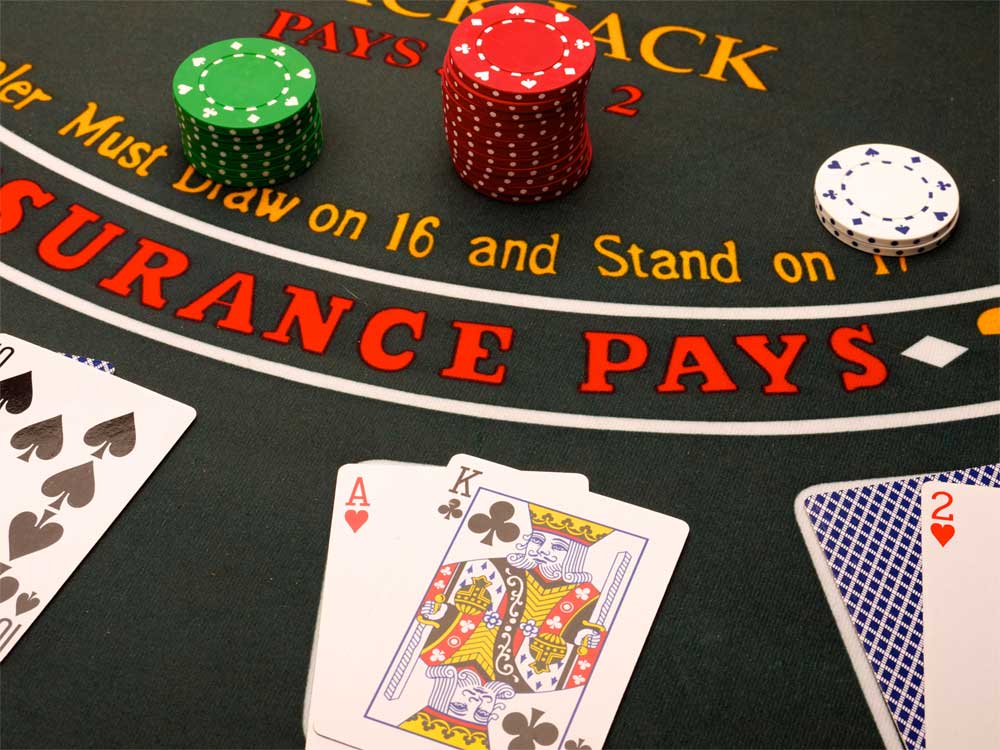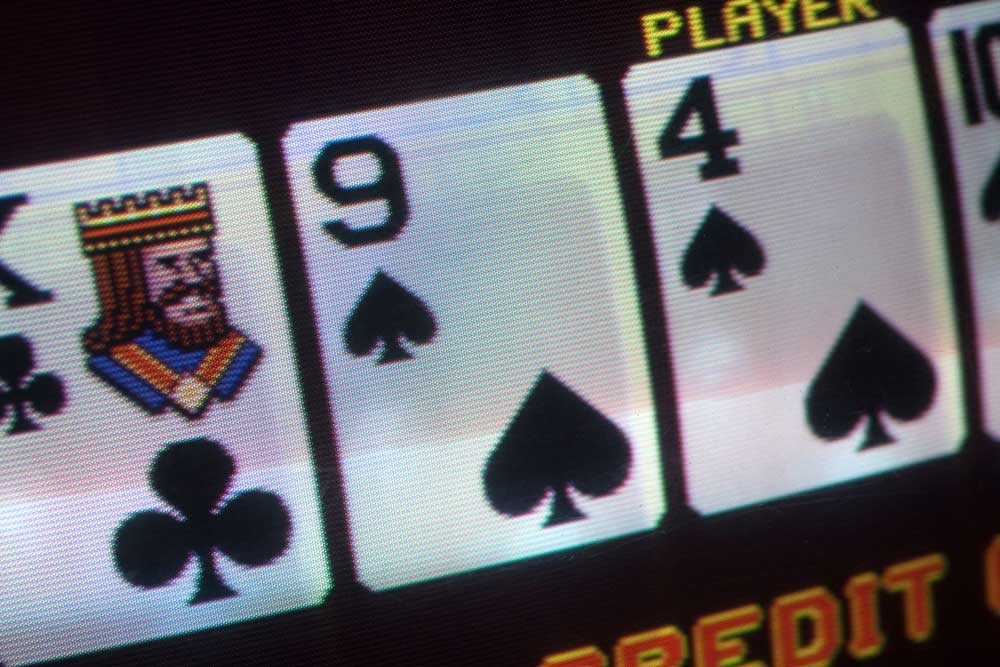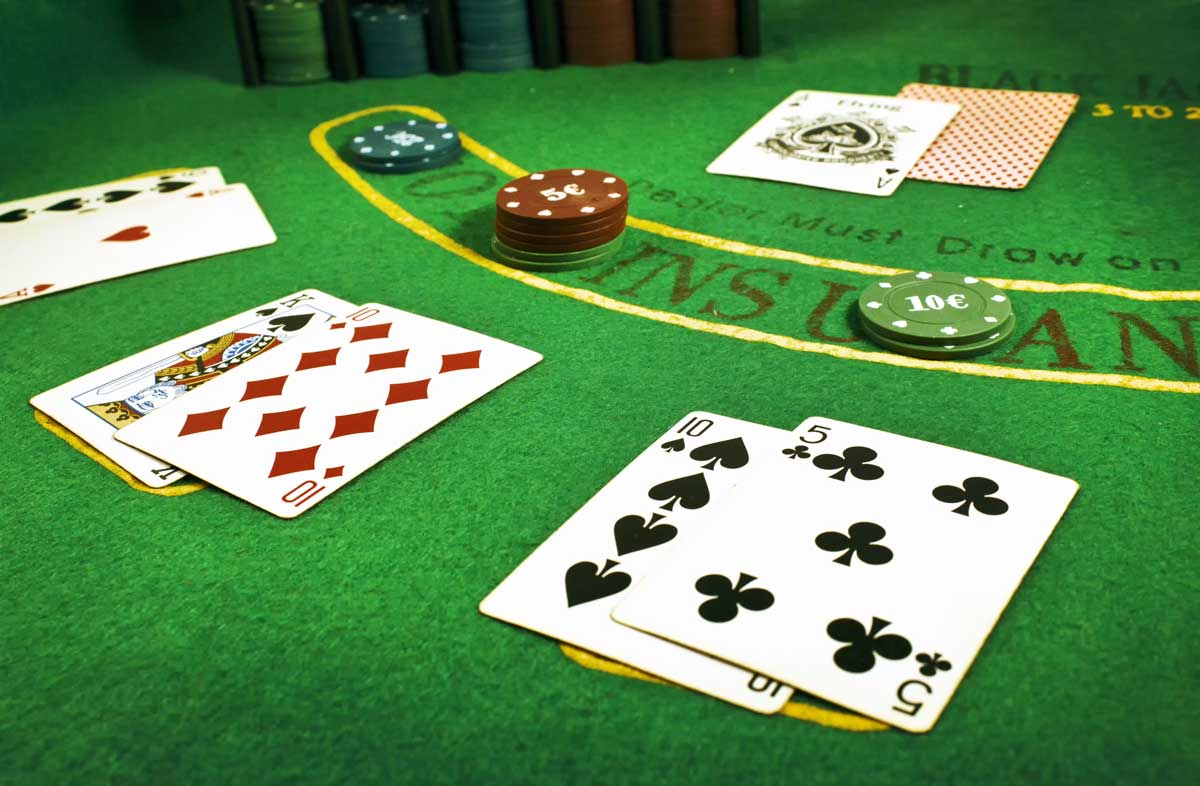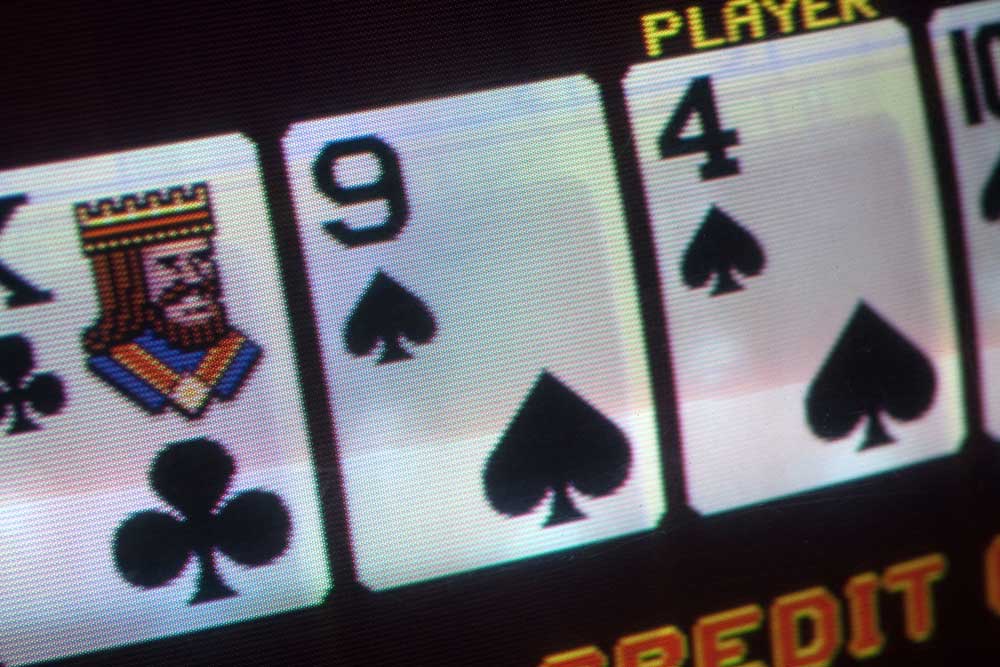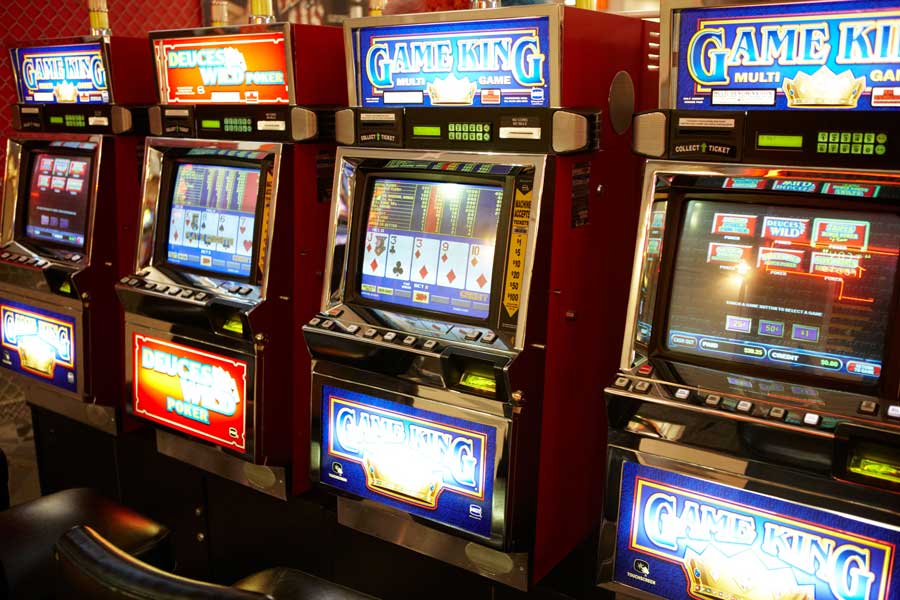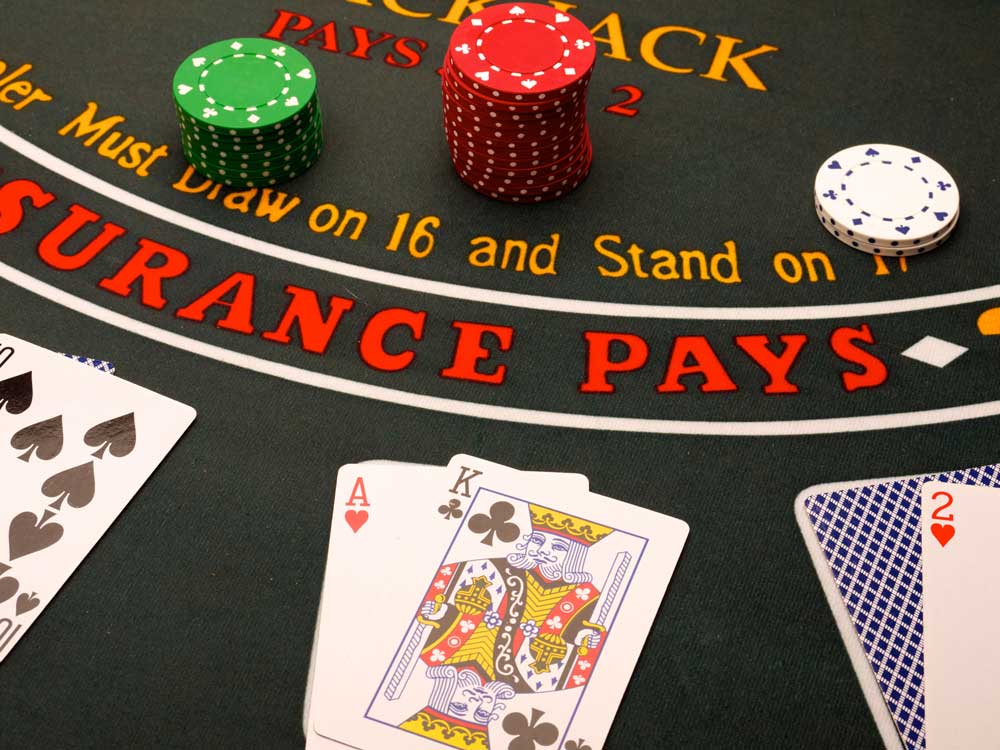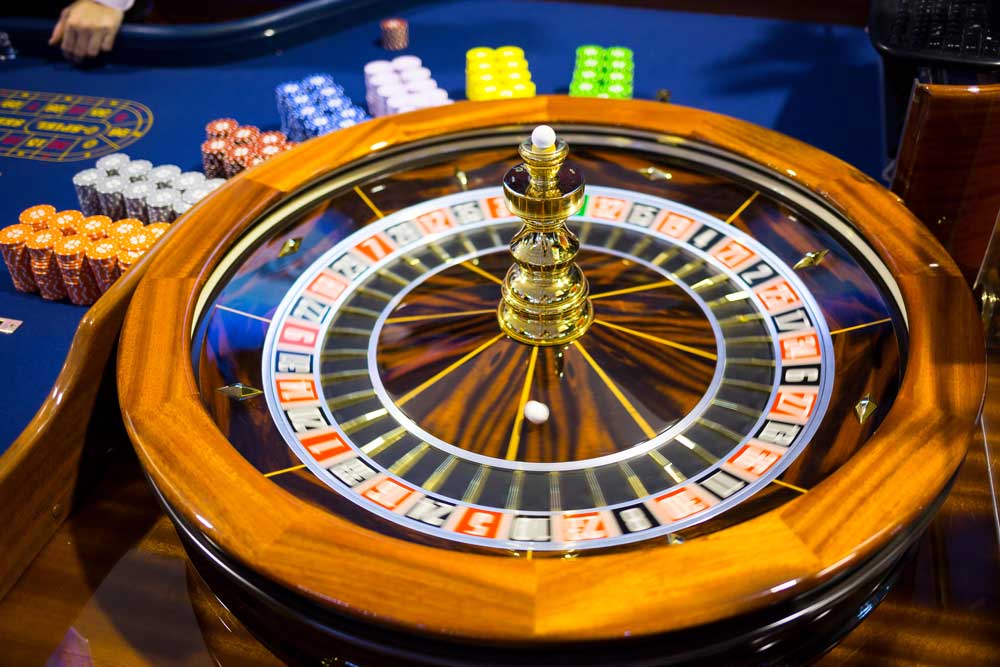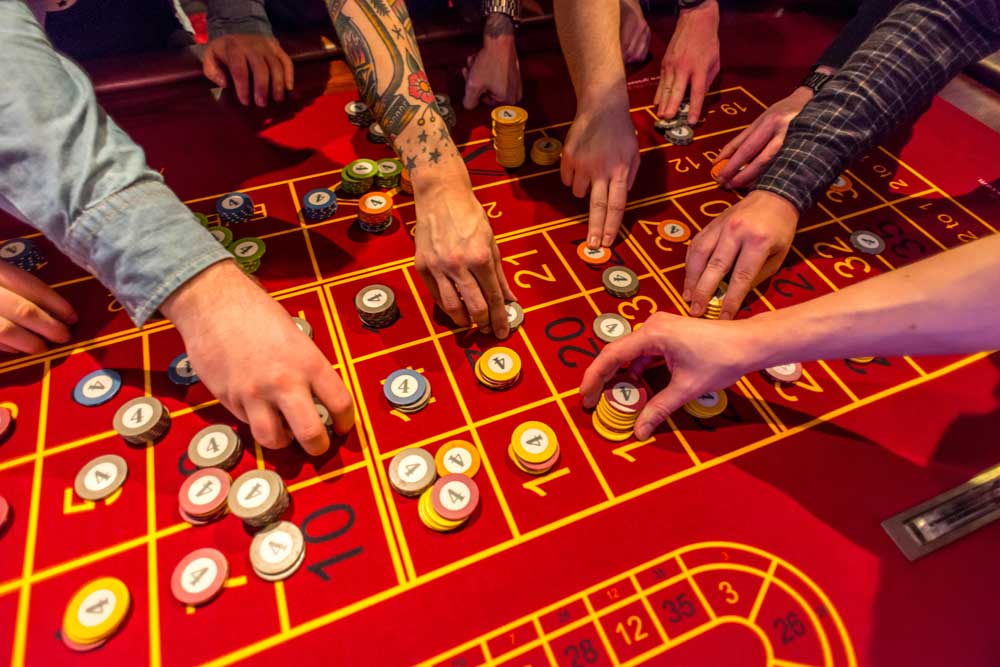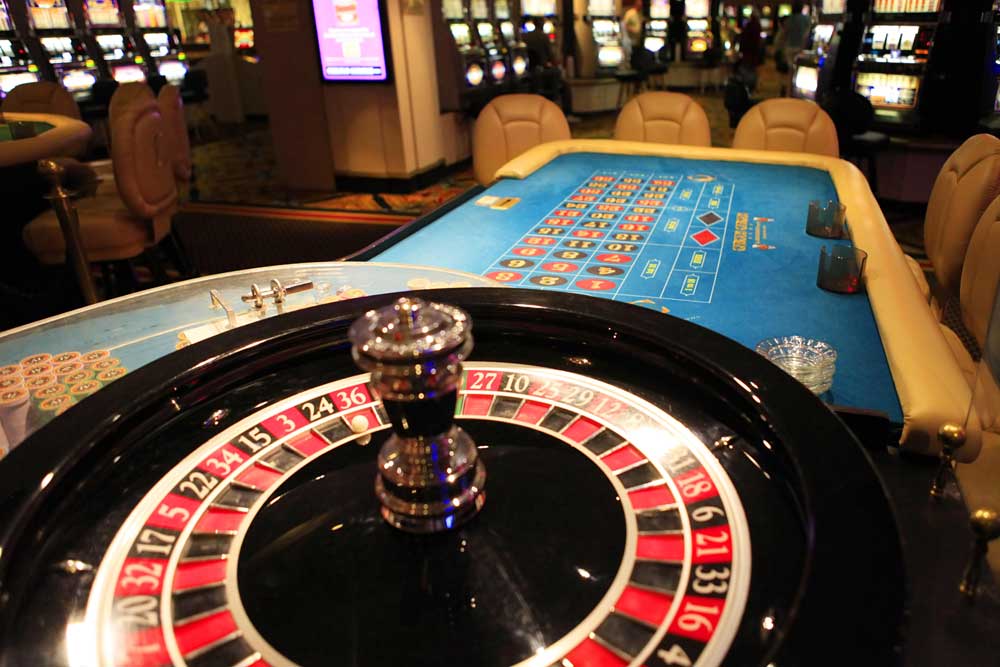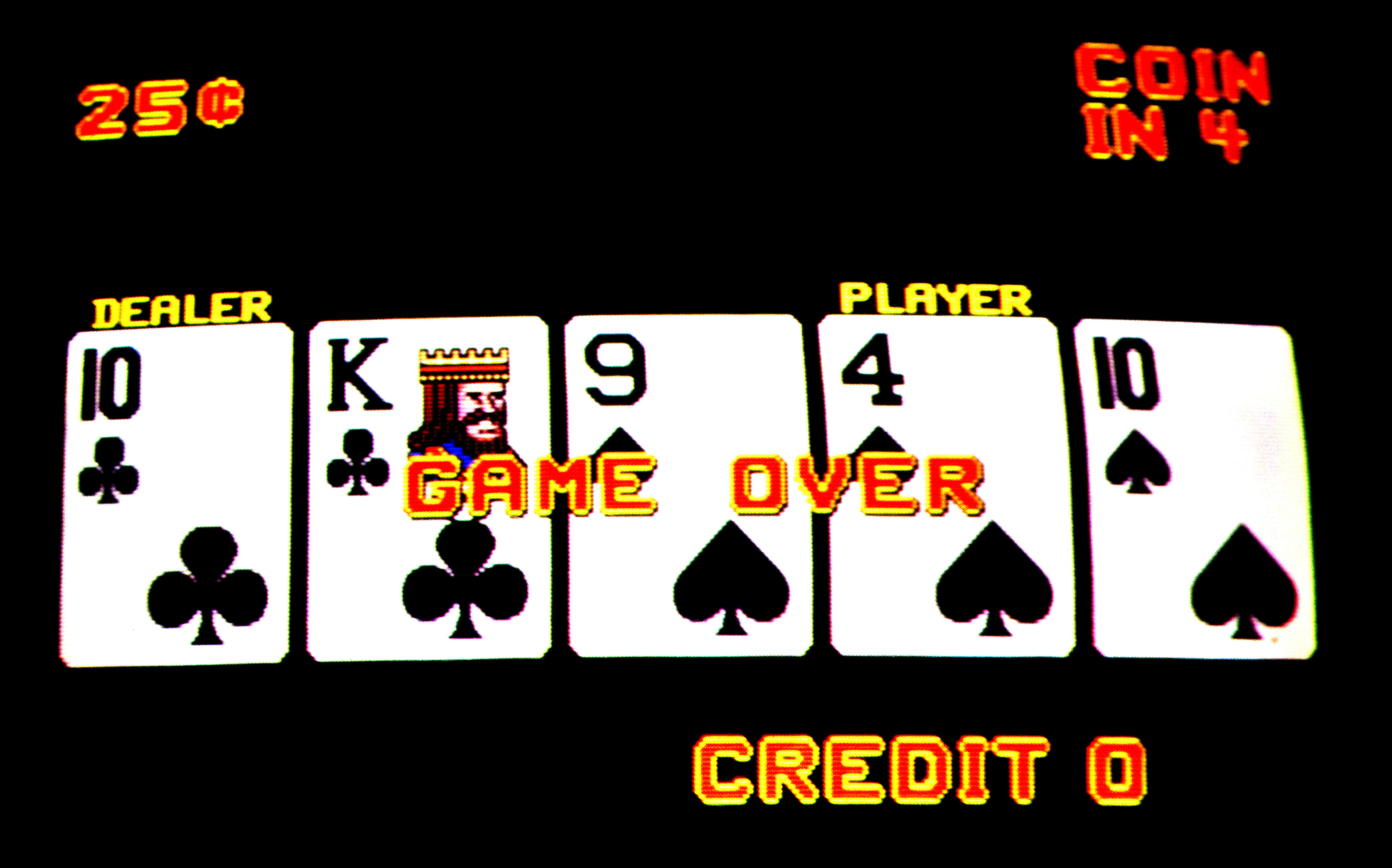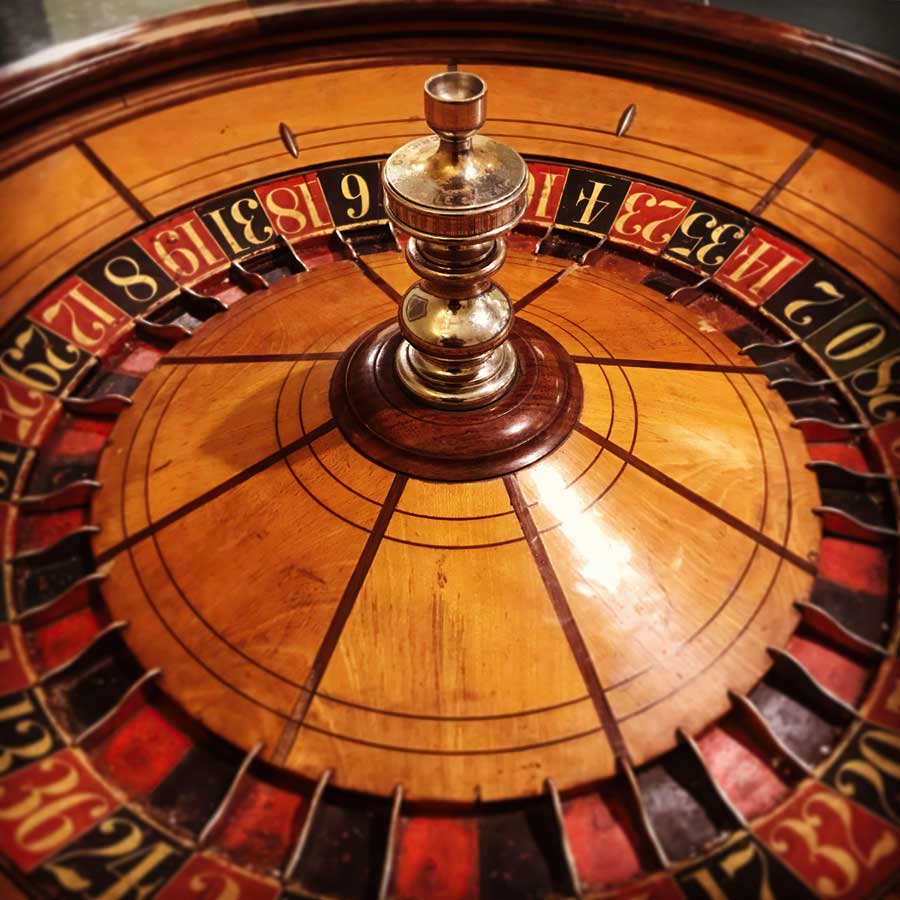In this "Roulette Strategy Guide: Searching for Biased Wheels," you’ll learn about a well-known method that has been used to beat the game of roulette.
Taking advantage of biased roulette wheels was a real prospect before casinos began using technology to track roulette outcomes. Searching for roulette wheels with biases, in land-based and online casinos, isn’t easy and finding one is a big challenge. But how do you go about finding a biased roulette wheel?
And how do you bet on a roulette table that has a bias roulette wheel? Keep reading because as we unlock the mysteries of those elusive biased roulette wheels, the most important questions will be answered.
Roulette is an Old, But Still Exciting Gambling Game
Casino goers have been fascinated with the game of roulette for centuries. The roulette wheel evolved from a simple spinning top developed in France in the late 1600s. By 1843 the first single green zero French wheel was in use.
Roulette gamblers and spectators watch the drama of pending bets unfold — all those casino chips placed on numbers on the roulette betting layout.
All eyes are drawn to the little white ball spinning around the live roulette wheel. And then everyone seems to hold their breath and skip a heartbeat as the ball drops onto the roulette wheel and lands in a numbered pocket.
Live roulette outcomes conclude by randomosity. The interrelating factors include the relationship between speed and momentum, obstacles, and conditions.
Casino House Edge in Roulette vs. Biased Roulette Wheels
Everything about roulette is random right? And so, the game cannot be beaten because of the casino house edge which is 2.7% on a single zero roulette wheel.
Think again. When a roulette wheel has a bias, part of the random nature of roulette outcomes branches off into their own dominating ecosystem, and thus a statistical abnormality is flowered.
When a roulette wheel really has a bias, a player’s edge can be established—but only when the player wins. The percentage advantage for a player can vary depending on how bad the bias is for the casino.
And any such edge cannot be pinned down since there’s no guarantee a bias will demonstrate itself when money is being staked at a roulette table.
A roulette gambler trying to take advantage of a bias roulette wheel only needs to bet big on the right winning outcomes to profit from the bias. The numbers on a wheel he identifies as forming the bias will be the key to him beating roulette.
What are Biased Roulette Wheels?
One or more errors can contribute to forming a bias roulette wheel. Such as physical defects, wear and tear, chips, indentations, scratches and unlevel surfaces.
When a roulette wheel has a bias, game outcomes tend to favor certain numbers — I believe no more than seven numbers. A bias only needs to be slight for a roulette player to gain a substantial winning advantage.
There’re two main ways a roulette wheel is damaged enough to cause bias. Before I get into that, it’s important to understand the journey a roulette ball makes before landing on a number.
The Process of Live Roulette Games: How Games are Decided?
Live dealer started roulette games are decided randomly. The following five factors go into determining how a roulette game will conclude:
- The area on the ball track on the bowl of the wheel, in relation to the numbered pockets, at the moment the dealer releases the ball.
- The speed of the spinning ball.
- The speed of the wheel (that turns in the opposite direction to the ball).
- The most random factor is the moment the ball leaves the track – possibly colliding into one or more deflectors then falling onto the wheelhead and possibly changing direction if rolling up and off from the rotor cone, bouncing and hitting one or more of the pocket dividers.
- And so, a roulette game will conclude with the ball finally settling in one numbered pocket.
Each of the numbered pockets will go through phases where they peak as outcomes above other numbers. This is normal within the allowable variance pertaining how randomness operates in live games.
The greater the number of recorded live outcomes, the more likely different numbers will take over the top ranking positions. But when a roulette wheel has a bias there will exist sticky numbers that remain in top ranking positions.
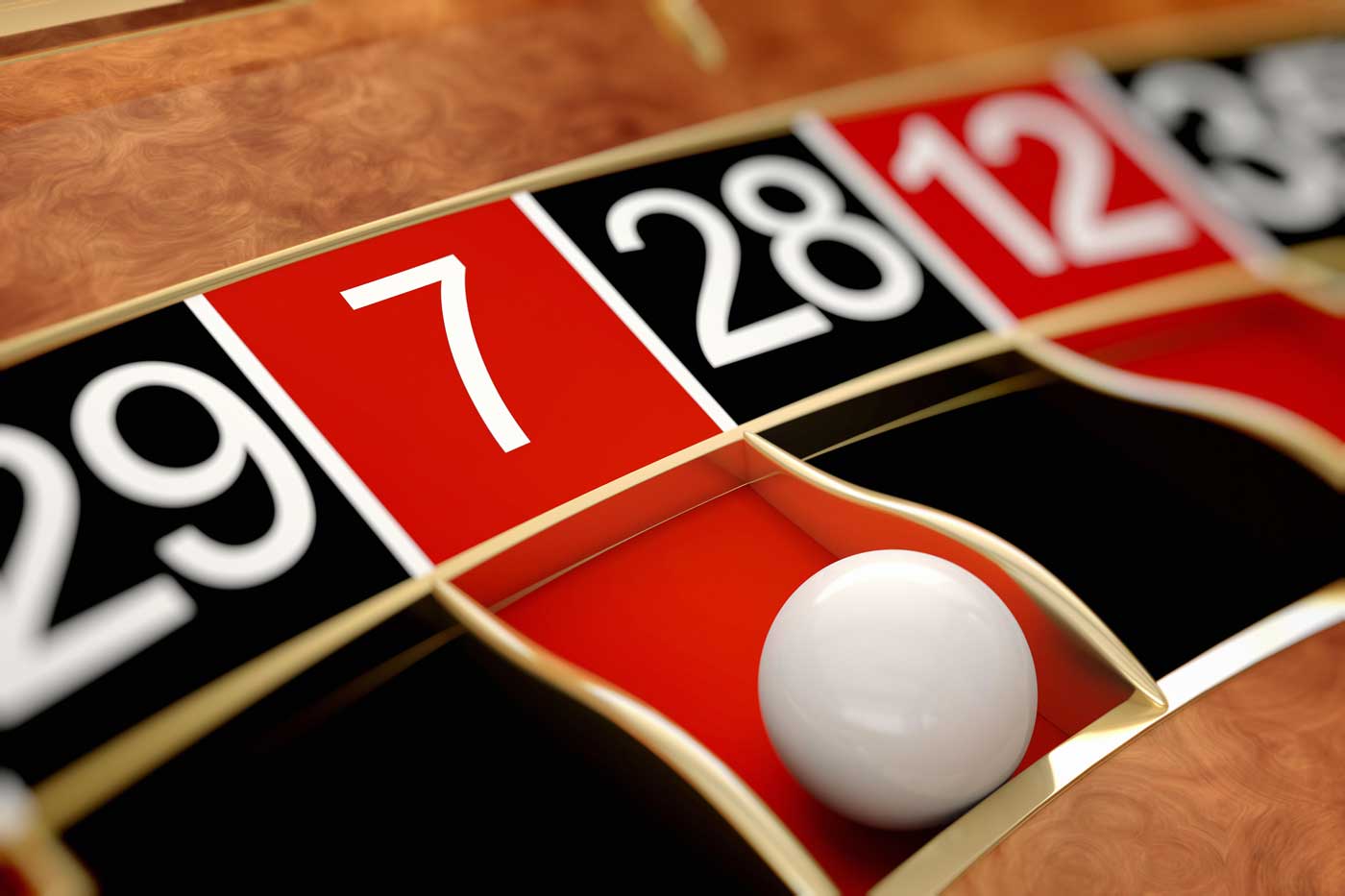
The Casino House Edge on Roulette Games
Casinos rely on the law of large numbers – safe in the knowledge that – small winning and losing streaks even out over many thousands of roulette outcomes. So, in the long-run, the house will profit from gamblers staking money on roulette games.
A roulette wheel could have a bias, but if no roulette player knows about it, the casino won’t lose money.
Taking Advantage of a Biased Roulette Wheel
If a roulette player is aware of a bias roulette wheel he could take advantage. Depending on how much he stakes on roulette outcomes, and how much of a bias there is, he could win lots of money from a casino.
If a gambler discovers a biased roulette wheel they should act fast to try and win as much money as they can from it before the casino fixes the errors.
Have Gamblers Profited from Biased Roulette Wheels?
Over the years various people have exploited biased roulette wheels to beat the house at its own game. They won a lot of money gambling on roulette numbers that hit significantly more times than is normally expected.
In the late 19th Century, English engineer Joseph Jagger famously won big at the Casino de Monte-Carlo over several consecutive days. Jagger hired six people to note down roulette outcomes of six roulette wheels.
He then analyzed the data and identified the numbers on one biased roulette wheel that provided him with an excellent opportunity. This inside knowledge gave Jagger the confidence to bet big on those numbers.
It proved to be a powerful advantage over the house that made him rich. Jagger won about two million francs — about £8million in today’s money, allowing for inflation.
Is it Still Possible to Win on Biased Roulette Wheels?
As methods improved in roulette wheel manufacturing and tracking roulette outcomes, identifying biased wheels has become extremely difficult.
Noticeable physical exploits are now rare especially when roulette wheels are maintained by casino engineers.
However, since Jagger’s day there are numerous accounts of gamblers who took advantage of bias roulette wheels in modern times. Some of these big roulette winners are listed below.
- In 1950, Helmut Berlin.
- In the 1960s, Dr. Richard Jarecki.
- In the 1990s, Gonzalo Garcia-Pelayo.
Truth be known, there still could be roulette players who profit from biased roulette wheels in casinos. Operating under the radar, they choose not to win big in one session which is why they don’t make headlines.
Even though casinos track roulette outcomes, biases can still develop before a casino notices or has the errors repaired. The bottom line is that the stats taken from a roulette wheel should prove a bias before a casino acts.
Though a casino may not do anything about an existing bias – they may not have noticed or acted on – until a player begins to win a lot of money. Most casinos don’t have roulette wheel engineers on site.
Spotting a Biased Roulette Wheel
Earlier I wrote there’re two main ways I believe a roulette wheel can be damaged enough to cause bias. A biased wheel should not be so obvious otherwise the casino would withdraw it from the gaming floor. This is why casinos now use technology to detect and fix errors.
But it’s still possible for a roulette gambler to pick-up on errors before the casino makes changes.The issues leading to a bias roulette wheel are as follows:
- Bearing related – Wear and tear and imbalance damage can be caused by over use and dealers leaning on the wheel. This kind of bias on a roulette wheel will affect a sector of the wheel.
- Metal divider issues – Finger rings worn by dealers and the pressure applied to turning the wheel causes damage.
This kind of bias on a roulette wheel will favour particular numbers. And these numbers are not necessarily contained in one area of a roulette wheel.
You see, the older a roulette wheel has been in use, the more likely it is prone to bias. In my view, it’s the roulette croupiers/dealers who start live roulette games who cause biases in roulette wheels.
This is because they lean on wheels and cause damage to dividers as they speed up wheels and slow the rotation of wheels.
I believe biased roulette wheels do exist and most of them have evolving bias. What I mean is that the bias that exist now on one roulette wheel will change over time. The imperfections of existing biases can worsen, and new sub-biases could develop.
In the same way stone steps become worn by millions of people stepping on them over hundreds of years, the appearance of the damage changes overtime.
In this respect, casino dealers really do leave their signatures on roulette wheels. But we can’t spot a bias roulette wheel without identifying those winning bias roulette numbers.
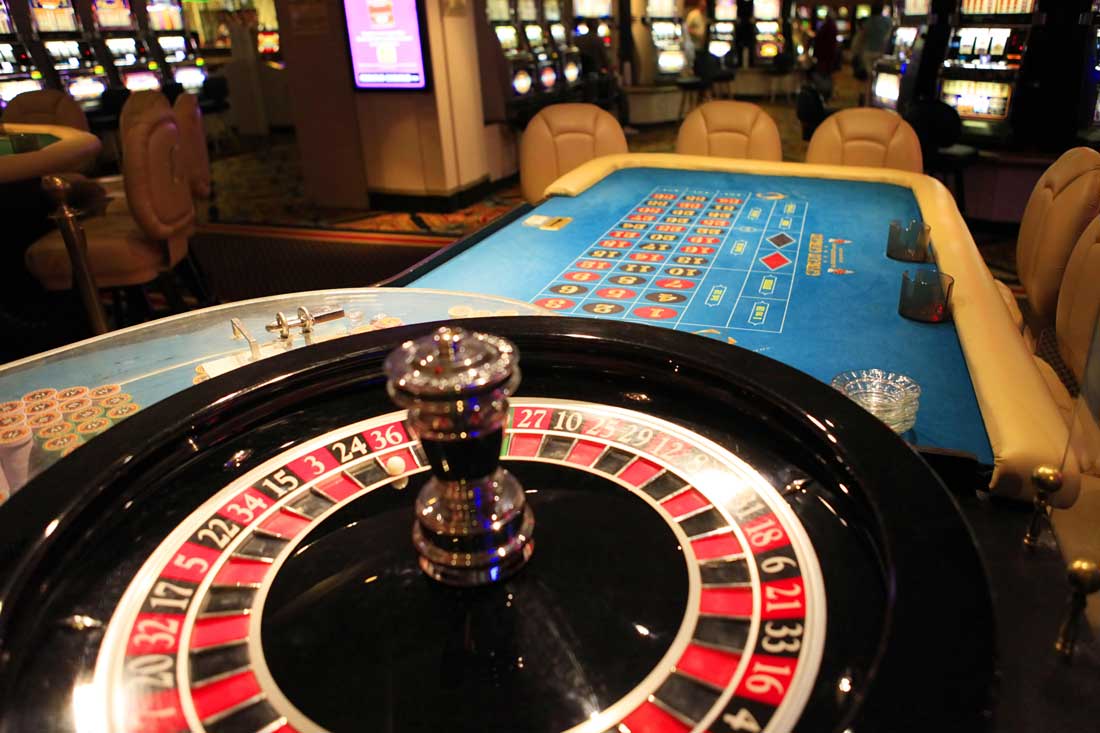
How to Know if the Casino has Moved a Roulette Wheel
Firstly, it’s important to make sure that you know how to identify a particular roulette wheel. Don’t try and inspect it when it’s in use. When the dealer is standing beside a roulette wheel operating games he’ll keep the wheel turning.
It’s difficult to inspect a moving wheel. Go and inspect the wheel early morning or late at night. But whatever you do, don’t make it obvious that you’re inspecting the wheel. Most casinos don’t bother covering their roulette wheels when they are not in use.
Stand close to the wheel and pretend to be talking on your phone. Don’t lean on the wheel or on the table — just stand beside it.
Look at the wheel then look away. Do this a few times to note three different areas of the actual wheel — not the bowl — that have certain significant marks or scratches that can’t just be dusted away. But whatever you do, don’t ever touch any part of a roulette wheel. And don’t take any pictures of a wheel using your phone.
Casinos have more security cameras per square foot than the Bank of England. They only need a small excuse to ban you if they think you’re up to something.
Leave the area, and while still fresh in your mind, make a note on a piece of paper or on your phone where the marks/scratches are in relation to the numbers on the wheel. And make sure you’re out of sight of the casino’s cameras that can zoom in on your notes.
If the casino moves a roulette wheel you’ll know how to find it. And whatever you do, don’t tell a soul in the casino. Once you tell someone a secret it’s no longer a secret. If the word gets out you are tracking outcomes, and the casino gets wind of it, you’ll be booted out.
Anyone is allowed to note down outcomes and casinos even provide scorecards. But they don’t like people gathering too much information trying to search for bias roulette wheels.
How to Identify Winning Biased Roulette Numbers
Identifying a biased roulette wheel: Option 1:
It’s not enough to spend a couple of hours tracking 100 or 200 spins of a roulette wheel. A small sample like that could look biased, but that would be the result of normal variance within that limited dataset.
Identifying a biased roulette wheel: Option 2:
You can record many thousands of outcomes on many wheels. But this will take one person years and there’s no guarantee you’ll discover a biased roulette wheel. If roulette outcomes favored one or more numbers constantly, casinos would take measures.
Trying to find a biased roulette wheel by analyzing many thousands of outcomes can take time. And the information isn’t dependable because in flux swings in popular numbers will render a suspected bias to be superficial or short lived.
Identifying a biased roulette wheel: Option 3:
An easier way would be to capture the four or five hot and cold numbers on display. If you did this for three or up to six months, certain hot numbers may emerge. This is not to say there’s any long-term bias, but the data would give you a promising idea of what is going on.
And if you noted these results twice in a day, i.e. early evening and late evening, you’d have some useful information that could form a valuable picture overtime.
If you can show the progression of change in hot and cold numbers. Meaning if certain hot numbers stayed hot overall for longer than others then you might be onto something.
Of course, this is assuming the casino doesn’t move wheels around the gaming floor. You would need to ensure the data relates to the same wheels you are monitoring.
Is it Possible to Discover a Biased Roulette Wheel Online?
Assuming the roulette wheel is live, i.e. dealer started and it’s the same wheel being used then it’s still possible to discover a bias. Of course, it’s always going to be easier to discover and profit from land-based roulette wheels with biases.
Trying to profit from online biased roulette wheels will be a challenge. Because a player’s profit and loss are monitored in real time, there’s only a small window of opportunity to win big wagering in online roulette games (read this article for even more roulette strategy advice).
Betting on Biased Roulette Wheels
Would it be easy to win money betting on a roulette wheel that has a bias? If there truly was a bias on a roulette wheel that had not been noticed by a casino or the error rectified, then in theory a roulette player should be able to win big.
But the roulette player seeking to take advantage would need to work out when to stake bigger bets on the bias numbers.
A roulette player would need to know roughly when the numbers are likely to hit. It’s one thing discovering a slight bias and another thing knowing when to place bets and how much to risk on those roulette games.
Q&A Roulette Strategy Guide: Searching for Biased Roulette Wheels
Has anyone ever found a way to beat roulette consistently?
From 1843 to the present, people have been trying to beat roulette consistently. Individuals such as, Joseph Jagger, Helmut Berlin, Dr. Richard Jarecki and Gonzalo Garcia-Pelayo did win big exploiting physical defects on bias roulette wheels. But the casino house edge on roulette remains.
Do biased roulette wheels still exist?
Physical roulette wheels are not perfect. Biases can develop on roulette wheels due to flaws and damage. Although biased roulette wheels exist, they are not easy to find in land-based casinos and are even harder to find in online casinos.
How do you know whether a roulette wheel has a bias?
You won’t be able to tell if a roulette wheel has a bias just by looking at a wheel. But there can be signs that it might. If the roulette wheel is old and well-used there may be signs of damage.
However, the real test if a roulette wheel has a bias is achieved by gathering many thousands of roulette game outcomes. When certain numbers (no more than seven) “consistently” rank at the top of the outcome chart, then those numbers probably form a roulette wheel bias.





